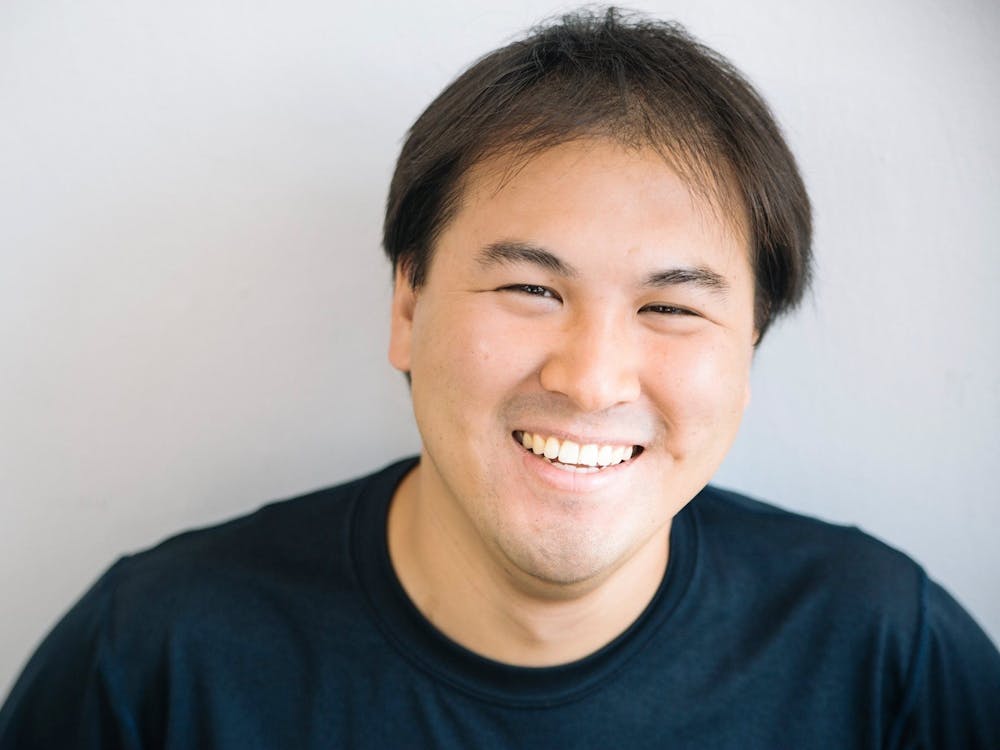When Scotty Shaw, Trinity ‘09, helped create HackDuke: Code for Good, a social impact hackathon at Duke, he had no idea he’d later work on a hackathon organized by the European Commission to combat the effects of a global pandemic.
The hackathon, known as EUvsVirus, took place April 24-26. Shaw worked as the U.S. national curator, helping to manage the competition, publicize the event, mentor participants and reach out to companies that could potentially participate in the accompanying matchathon.
Participants submitted projects in one of six categories: health and life, business continuity, social and political cohesion, remote working and education, digital finance, and other.
The competition had more than 30,000 participants, Shaw said. Of the 2,160 solutions that were submitted, the EUvsVirus Hackathon Jury selected 117 winners, with projects ranging from an online platform to centralize the donation of medical supplies to a virtual coaching system to help users cope with pandemic-related stress.
The winners participated in the EUvsVirus Matchathon in May, a program that helped them implement their projects by connecting them to educational institutions, investors, nonprofits and private corporations.
Shaw explained that EUvsVirus’s founders first recruited him to help work on the hackathon when they learned that he’d hosted coronavirus-based hackathons on four consecutive weekends, beginning in mid-March, through hackcovid.org, a website he designed and launched March 12. The winner of Shaw’s second hackathon was Shehzan Maredia, a Duke sophomore working on a coronavirus tracking app.
Shaw attended high school in Waco, Texas, which he described as “not exactly where you want to come from. Statistically, I was not supposed to make it into Duke.” While a pre-med history major at Duke, Shaw said that he was a proud resident of Krzyzewskiville.
After working in San Francisco for several years, Shaw returned to Duke as a Continuing Studies student 2013-2016 and earned the equivalent of a bachelor’s degree in computer science. During that time, he partnered with two undergraduates to found HackDuke, which he called “by far the best social impact hackathon.”
After completing his continuing studies program, Shaw took time to travel and reflect. “I was thinking, do I really want to go back and work for someone else?” he said. “Or do I want to really try to impact something or someone?”
Shaw said that much of his interest in working for social good can be traced back to his time at Duke. “I really felt like that was what we were called on to do at Duke,” he said.
Shaw ultimately decided that the best way to fuse his passion for mentoring with his background in computer science, while also making a tangible social impact, was to reproduce HackDuke.
“If I take what I did at HackDuke and replicate it, then I’m kind of tying everything I’ve ever done into one neat package,” he said.
In January 2017, Shaw began reaching out to universities about creating hackathons. Each time Shaw begins working at a new university, he recruits students and trains them to run the competitions themselves, so that the projects become “by your students, for your students.”
Since then, Shaw’s nonprofit, Tech Tree Root, has helped to found hackathons at 15 universities, including Rice University and Baylor University. The organization’s website explains that its events “combine a technology conference, a career fair and an entrepreneurship competition.”
Shaw credits much of his immediate drive to launch and run multiple competitions through hackcovid.org to his anger about the cancellation of the NCAA tournament in March. “Thankfully, I was able to channel it in a productive way,” he said. “Somehow, everything is connected to basketball. Tent Four in K-ville—that stuff stays with me forever.”
Shaw quickly became aware of the importance of anti-coronavirus hackathons to help create solutions that would ultimately save lives, but also to “give people a general sense of hope and purpose.”
Shaw’s role with EUvsVirus has included challenges: He said that he often stays up as late as 5 a.m. to work with European team members. However, he expressed that he was very impressed by the success of the competition and by many of the individual submissions.
The EUvsVirus submission that most impressed Shaw was a project called Sewers4Covid, which outlines a system that combines sewer monitoring with artificial intelligence and machine learning to anticipate where outbreaks of the virus might occur.
Shaw hired two Duke interns through the Phoenix Project to assist with his role as U.S. national curator. One of those students is Francisco Reveriano, a graduate student at the Pratt School of Engineering.
Reveriano is also involved with other internships this summer but decided to work with Shaw partially because he felt disappointed in the U.S. response to the coronavirus.
Get The Chronicle straight to your inbox
Sign up for our weekly newsletter. Cancel at any time.
“I felt that if the EU was actually taking a lead and trying to find solutions to this problem that’s impacting everyone, it’s our responsibility to help out, to do any small thing we can do,” he said.
Reveriano’s main roles in the project involved mentoring participants and connecting with potential corporate partners. He said that the most rewarding part of this work has been “knowing that this COVID-19 crisis is going to be solved,” because there are so many people dedicated to working on it.
He’s working to make a difference now, but Shaw reflected on struggling academically during his first few years at Duke. He credits his peers and Duke’s alumni network with helping him reach success.
“When people from all these colleges I work with ask me why I create hackathons, I say, ‘I’m trying to help your school,’” Shaw said. “But when my friends from Duke ask me, I’m always saying, ‘Think about it, that’s what the worst student at Duke can do.’ I was one of the worst students, statistically, and my class rank is there so I can’t change it. That’s all to say, not everyone who comes to Duke is coming from the best background to start out, and that’s ok.”

Anna Zolotor is a Trinity senior and recruitment chair for The Chronicle's 118th volume. She was previously news editor for Volume 117.

